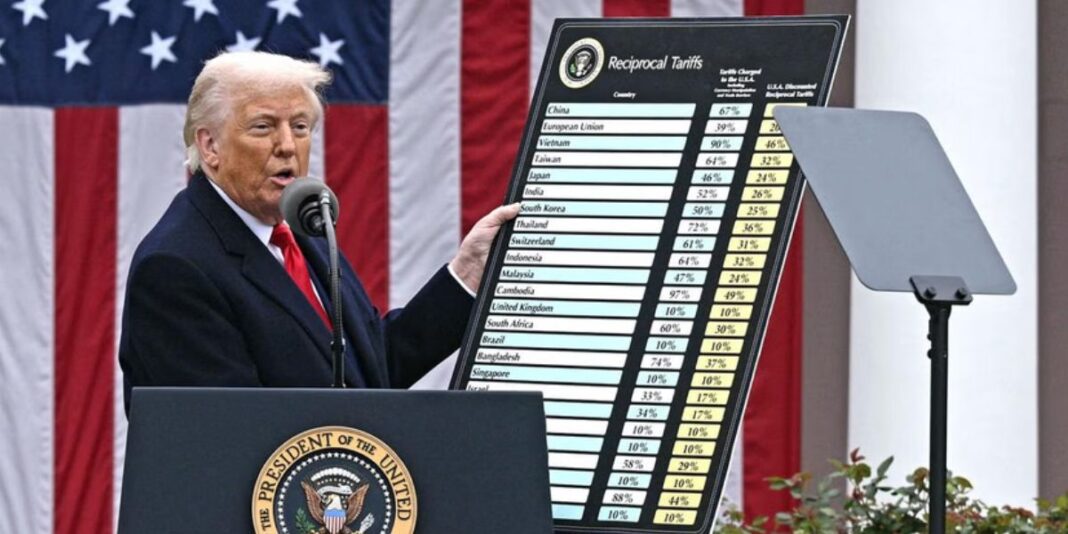The United States has announced a sweeping 14% tariff on Nigerian exports as part of a broader global trade policy shift under President Donald Trump. The announcement was made on Wednesday during a Rose Garden event dubbed “Liberation Day,” marking a significant departure from the free-trade principles that have shaped the global economy since World War II.
A New Trade Era
Declaring the start of a “fair trade” era, Trump pledged to strengthen America’s industrial base and break down foreign trade barriers.
“This is one of the most important days in American history,” he stated. “We will supercharge our domestic industrial base, pry open foreign markets, and break down foreign trade barriers.”


The new tariffs, which take immediate effect, impact over 50 countries, including key trading partners such as China, the European Union, India, Japan, and several developing economies across Africa, Asia, and Latin America.
Nigeria’s Trade with the U.S.
According to 2023 data from the Observatory of Economic Complexity (OEC), Nigeria exported $6.29 billion worth of goods to the U.S., with key exports including:
- Crude Petroleum – $4.73 billion
- Petroleum Gas – $920 million
- Nitrogenous Fertilizers – $167 million
Over the past five years, Nigeria’s exports to the U.S. have grown at an annualized rate of 1.59%, increasing from $5.81 billion in 2018 to $6.29 billion in 2023.


Implementation and Economic Impact
The White House confirmed that an initial 10% tariff would be applied starting April 5, with the full 14% duty taking effect on April 9. The administration expects the tariffs to generate hundreds of billions in revenue, funding key domestic projects.
The move is expected to have significant economic implications for Nigeria and other affected countries, particularly those heavily reliant on trade with the U.S. The Nigerian government and trade experts are expected to respond to the new policy in the coming days.




